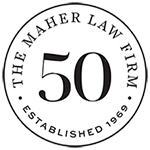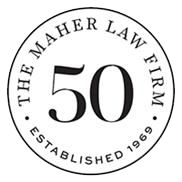What You Need to Know About Shoulder Dystocia and Related Birth Injuries
Obstetric brachial plexus palsy occurs in less than one percent of live births. It is most common during a vaginal delivery when, after the baby’s head emerges, there is difficulty delivering the baby’s shoulder. The baby’s shoulder may become impacted, or stuck, behind the mother’s pubic bone. This is called shoulder dystocia, and it is considered a medical emergency.

Call Us 24 Hours a Day at 407-839-0866 or Fill Out The Form Below to Schedule Your Free Consultation
If, after encountering a baby whose shoulder has become stuck in the birth canal, a doctor uses excessive force or pulls the baby at the wrong angle, the baby may experience stretching or tearing of the group of nerves called the brachial plexus. This highly important group of nerves connect the baby’s spinal cord to the shoulder, arm, hand and fingers. This stretching or tearing is known as brachial plexus injury, or brachial plexus palsy.
What are the Symptoms of a Shoulder Dystocia Birth Injury?
Shoulder dystocia injuries may result in:
- Pain
- Loss of sensation
- Muscle weakness
- Paralysis of some or all of the muscles of the shoulder and arm
- Avulsion pain (a burning or crushing pain)
What are the Different Types of Shoulder Dystocia Birth Injuries?
Erb’s Palsy (or Erb-Duchenne palsy) is the most common brachial plexus injury that occurs during delivery. It affects the baby’s shoulder and upper arm in several different ways. The baby’s arm may appear stiff and crooked and have limited range of motion. Other times, the baby’s arm may appear limp or loose, with a limited ability to control or move the arm. A common appearance of a baby affected by Erb’s Palsy is a "waiter’s tip” hand position, where the hand is at the baby’s side, facing backward and cupped.
Klumpke’s palsy (or Dejerine-Klumpke palsy) affects the baby’s lower arm—generally the hand, wrist or forearm. A baby affected by Klumpke’s palsy may have a claw-like hand appearance, with flexed wrists and fingers.
Is Shoulder Dystocia Injury Preventable?
In many circumstances, shoulder dystocia may be a preventable complication of childbirth. Risk factors for shoulder dystocia include:
- Diabetes of the mother while pregnant
- Macrosomia (very large baby)
- History of experiencing shoulder dystocia during previous delivery
- Maternal obesity, and high material weight gain during pregnancy
- A prolonged second stage of labor
- Use of forceps or vacuum extraction tools
Brachial Plexus injury may also occur during a breech birth. A breech birth occurs when a baby’s feet are delivered first. Injury to the shoulder can occur if the arms are pulled backward over the head during a breech delivery.
It is important for doctors to monitor the progression of your pregnancy, including ultrasound measurements and fetal position, and be aware of any potential risk factors for shoulder dystocia. There are many options available for doctors to help prevent or minimize injuries due to shoulder dystocia when risk factors are present and properly identified:
- Counseling the mother about the possibility of a cesarean section
- Ensuring that adequate staff is in the delivery room ready to assist if needed
- Applying suprapubic pressure
- Applying certain obstetric maneuvers when necessary (McRoberts maneuver, Zavanelli maneuver)
- Delivering the posterior arm
Get Help From An Experienced Orlando Birth Injury Attorney
If your child suffered a brachial plexus injury, or any other birth injury you believe was caused by a negligent action or inaction of your healthcare providers, please call us for a free consultation. Negligent or careless actions by your physician can cause permanent harm to your child, and we can help you can seek justice for those responsible.
Call our birth injury lawyers today at 407-839-0866 to schedule your free consultation.


